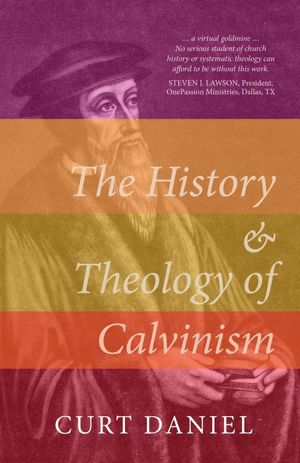This must be the most comprehensive study of the subject available today. It is difficult to think of any aspect of Calvinism that is not covered.
It is divided into two major sections. The first covers the history, and ranges from Augustine through to the 20th century. It explores many of the tributaries thrown up by Calvinism but never loses sight of the main stream: authentic Reformed theology.This is dealt with in the second, larger portion. 62 chapters here will give an indication of how exhaustive this study is. The writer does not confine himself to the ‘five points’, but helpfully ranges over other important doctrines associated with the scheme. Scarcely any aspect fails to be investigated.It is a demanding read, not helped by the small print across more than 900 pages, but it is clear and easy to follow. Perhaps it is not a book to be read from cover to cover but rather viewed as a textbook, as the author himself suggests. Extensive footnotes and bibliography not only show the breadth of the author’s research, but provide anything the reader might wish to study further. When some aspect of Calvinism or Reformed theology occupies your thoughts, take the book down from your shelves, skim through the chapter headings, and you will almost certainly find material to enable you to go deeper.When dealing with the various shades of opposition to Reformed theology that have arisen over the years, the author is fair and balanced. He avoids intemperate condemnation and points out the faults gently but authoritatively. For example, Arminianism is ‘an error but not necessarily a damnable heresy’ (p.14).He is equally measured in his treatment of the great heroes of Calvinism, insisting that they should be understood against the background of their times. Addressing the Servetus incident in his potted biography of John Calvin, he concludes that the matter was not well handled, and that exile rather than execution would have served to maintain the godly society which the Reformers sought to establish.Although it is a history covering 15 centuries, Daniel finishes on a positive note as he views the future: ‘If Reformed Theology is the purest form of Biblical Christianity, then we can expect the Lord to bless it in the future’ (p.728).No student of Reformed theology or lover of church history should be without this book. Highly recommended!John Harris
Thornhill, Dewsbury








